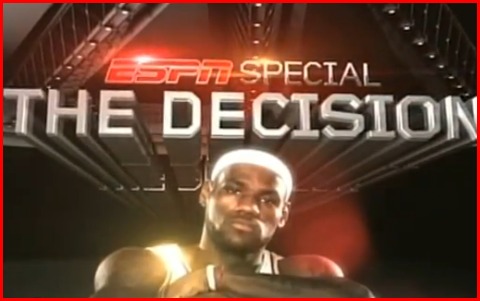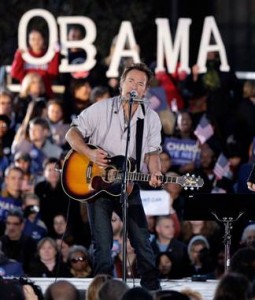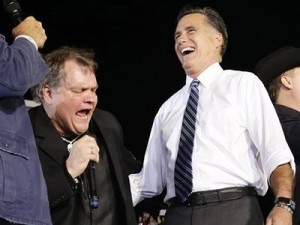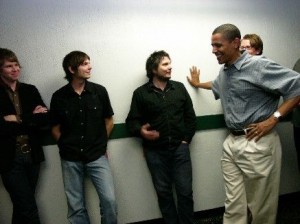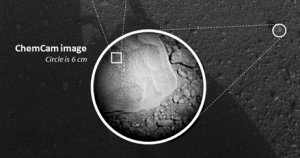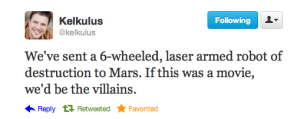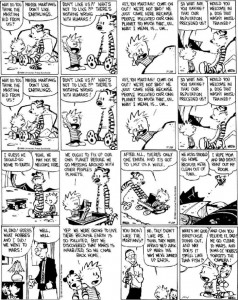How LeBron James and Hulk Hogan Legdropped Their Fans and Changed their Sports Forever
By Kyle Schmitt
Twitter: @Kyleradioviolet
This week marks the anniversary of two shocking moments that altered the history of their sports – LeBron James fleeing the Cavaliers to create Miami’s Big Three and Hulk Hogan’s declaration of a New World Order. Both superstars were the top talents in their industries, but chose to backstab their lame franchises – Cleveland and World Championship Wrestling (WCW) – on live television for a chance to win greater glories with cooler cliques. These epic narratives of alliance and betrayal, which climaxed one day apart in 1996 (July 7) and 2010 (July 8), upset the balance of power in their industries. James and Hogan defined their careers with these actions, transforming from fan favorites into the biggest villains in their sports.
Join us as we revisit the Decisions that changed professional basketball and wrestling forever.
The Settings
LeBron: ESPN’s “The Decision” TV special, broadcast from the Boys & Girls Club, Greenwich, CT
Hogan: WCW’s Bash at the Beach 1996 pay-per-view event, broadcast from the Ocean Center in Daytona Beach, FL
The Prologue
2010 – James had just finished his seventh season with the Cleveland Cavaliers, but had still yet to win an NBA Finals game. The Cavs were knocked out of the 2010 playoffs by the Boston Celtics, led by their Big Three of Paul Pierce, Kevin Garnett, and Ray Allen. While James earned regular-season MVP honors and recorded a triple-double in the deciding game, Cavaliers fans dreaded their homegrown superstar’s impending free agency. During the summer of 2010, James embarked on a recruiting trip, meeting with six different franchises to determine where he would sign his contract. Following this courtship, news broke that James would announce his destination on a prime-time TV special airing on ESPN.
1996 – WCW was being terrorized by two ex-WWE superstars formerly known as Diesel (Kevin Nash) and Razor Ramon (Scott Hall). Wearing a denim vest, Hall interrupted a televised WCW match on May 27 and spouted the instant-classic line, “You people, you know who I am. But you don’t know why I’m here.” He concluded his snarky monologue with a direct threat to WCW: “You want a war? You’re gonna get one.” He and Nash followed up on this boast by launching several sneak-attacks on rival wrestlers. Finally, a WCW all-star team consisting of “Macho Man” Randy Savage, Sting, and Lex Luger combined their muscle at the annual Bash at the Beach event to fight Hall, Nash … and a mystery “third man”. Hall and Nash walked to the ring alone, but after they had laid out their opponents, a familiar face showed up to confront them …
Warning Signs
Basketball insiders immediately noted the significance of James removing his tank-top upon leaving the court following Cleveland’s season-ending loss to Boston. Play-by-play man Mike Breen wondered if this was the last time James would ever take off a Cavs uniform, providing epic foreshadowing by intoning, “If he leaves, it would be a disaster of enormous proportions for the Cavaliers.” Hogan showed similar signs of restlessness, shedding his trademark red-and-yellow garb in 1995 and sporting black wrestling gear to display his darker side. After losing the WCW World Championship at Halloween Havoc 1995, Hogan made sporadic in-ring appearances in 1996 while devoting time to his acting career.
Spoiler Alerts
While sports media fed an avalanche of rumors surrounding James’ free agency, Stephen A. Smith broke the news 10 days before “The Decision” that James and fellow Eastern Conference All-Star Chris Bosh would join 2006 NBA Finals MVP Dwyane Wade in Miami. Similarly, WCW color commentator Bobby “The Brain” Heenan sounded the alarm during Hogan’s walk to the ring at Bash at the Beach, repeatedly demanding, “Whose side is he on?” Fans still refused to lose hope in their saviors, disregarding both warnings as unthinkable.
Dirty Deeds
James jettisoned his organization and abandoned his diehard fans to join forces with Wade and Bosh in Miami. He ambushed his home-state team on national TV, telling the world that he was signing with the Heat. His announcement broke the hearts of a Cleveland fanbase that viewed James as the Chosen One who would lead their long-suffering city to a championship. His actions helped to establish the Heat as the presumptive frontrunner for the 2011 NBA Championship, while decimating a Cavaliers team that went from 61 wins in the 2009-2010 season to 19 victories in the 2010-2011 campaign. “The Decision” drew nearly 10 million viewers, and turned James into perhaps America’s most polarizing athlete. His move heralded a new era in which the league’s most talented stars would take less money, even in their primes, to combine forces with other great players for a better shot at winning titles. Suspicion persisted that James, Bosh, and Wade rigged the system to converge in a place of their choosing, reclaiming power for the players even as a new collective bargaining agreement eroded their share of basketball related income.
Hogan jettisoned his organization and abandoned his diehard fans to join forces with Hall and Nash. He cleared the ring of Hall and Nash to raucous cheers, only to double-cross WCW by leg-dropping a prone Savage. The Outsiders joined Hogan in decimating his co-Mega Power as a stunned crowd came to grips with what it had seen. Hogan then gave an interview to a livid “Mean” Gene Okerlund, proclaiming a New World Order (NWO) and telling his fans that “if it wasn’t for Hulk Hogan, you people wouldn’t be here.” His actions helped to establish Hogan as the presumptive frontrunner for the WCW World Championship (which he won a month later), and decimated a WCW stable reeling from the loss of its marquee talent. Hogan’s heel turn marked a sea change in professional wrestling, not just by having the most beloved wrestler of his generation break faith with millions of fans, but by signaling the end of an era of clearly defined heroes and villains and pointing the way toward the adult themes and grey shades of the Attitude Era.
The Outsiders
Both LeBron and Hogan formed an iron triangle with their top peers, colluding with a superstar widely detested by his colleagues (Wade/Hall) and a wisecracking 7-foot center (Bosh/Nash, the latter of whom played three seasons for the Tennessee Volunteers and enjoyed a professional basketball stint in Europe before entering the squared circle). Teaming with these Outsiders, King James and the Hulkster built the crews that would dominate their landscapes for years to come.
Media Presence
ESPN reporter Jim Gray, who asked James the preeminent question, “The answer to the question everybody wants to know: LeBron, what’s your decision?”
WCW reporter ”Mean” Gene Okerlund, who asked Hogan the preeminent question, “What in the world are you thinking?”
Signature Kiss-Off
LeBron: “This fall, I’m going to take my talents to South Beach and join the Miami Heat.”
Hogan: “You fans can stick it, brother!”
The Big Reveal – or, “What the hell is going on here!?” – WCW color commentator Dusty Rhodes
LeBron: “I can’t say it was always in my plans because I never thought it was possible. But the things that the Miami Heat franchise have done to be able to free up cap space and to be able to put themselves in a position this summer to have all three of us, you know, it was hard to turn down. Those are two great players, two of the greatest players that we have in this game today. And, you know, you add me, we’re gonna be a really good team.”
Hogan: “Well, the first thing you gotta realize, brother, is this right here is the future of wrestling. You can call this the New World Order of wrestling, brother.”
Why It Happened – or, “For you to join up with the likes of these two men absolutely makes me sick to my stomach… You want to put yourself in this group?” – “Mean” Gene Okerlund
LeBron: “I think the major factor and the major reason in my decision was the best opportunity for me to win. And to win now, and to win in the future… It’s about joining forces with the other two guys who I feel like I respect their game the most, and I feel like we have a great chance of winning and winning for multiple years.”
Hogan: “As far as Billionaire Ted goes, Eric Bischoff, and the whole WCW goes, I’m bored, brother. That’s why these two guys here, the so-called Outsiders, these are the men I want as my friends. They’re the new blood of professional wrestling, brother.”
Best OMG Moment of Realization that the Linchpin is Gone
Heenan: “Now what happens to us? What happens now to WCW? … What do we do now?”
Realist Fan on a Cleveland street talking about the Big Three: “They’re about to win a championship.”
But Really, How Bad Is It?
Heenan on the New World Order’s (NWO) formation: “Probably the lowest shot ever given to professional wrestling.”
Distraught Fan in Post-Decision Interview: “He’s one of our own; that’s what makes it so painful. Art Modell, you know, he was 65 years old, he went away and the Browns came back. LeBron can never come back.”
Ill Will and Bad Tidings
Rhodes: “A career of a lifetime, right down the drain, kid. I hope you love it – you just sold your soul to the devil.”
Angry Cavs Fan: “For him to go in there and drag us through the mud for seven years and stab us in the heart, he deserves everything he gets. I hope he never wins anything in Miami.”
Least Dignified Display of Physical Aggression
WCW Fans: Turning the Bash at the Beach ring into a landfill in their efforts to pelt Hogan with trash
Underemployed Fans: A protracted effort to burn Witness t-shirts and a Cavs #23 jersey while some guy off-camera mutters, “No integrity. No integrity.”
Least Dignified Display of Non-Physical Aggression
WCW Play-by-Play Announcer Tony Schiavone: “We have just seen the end of Hulkamania… Hulk Hogan, you can go to hell. Straight to hell.”
Cleveland Cavaliers owner Dan Gilbert channels his petulant inner seven-year-old in an infamous open letter, which condemns the “shameful display of selfishness and betrayal by one of our very own”, calls James out for deserting the region, and contains the immortal phrase, “Some people think they should go to heaven but NOT have to die to get there.“
Verdict of the Legends
NBA legend Michael Jordan on LeBron’s actions: “There’s no way, with hindsight, I would’ve ever called up Larry (Bird), called up Magic (Johnson), and said, ‘Hey, look, let’s get together and play on one team.’”
NBA legend Charles Barkley on LeBron’s actions: “If you’re the two-time defending NBA MVP, you don’t leave anywhere. They come to you. That’s ridiculous.”
Retired WCW wrestler Larry “The Living Legend” Zbyszko on Hogan’s actions: “Unmanly.”
Highspots
Both James and “Hollywood” Hogan won multiple world championships due to help from their two new friends. The Big Three reached four consecutive NBA Finals, winning championships in 2012 and 2013. Hogan would win numerous WCW World Championships with the NWO, exploiting a hip new persona to jumpstart his stagnant career. The Heat and the NWO became simultaneously the most popular and hated teams in their sports, and they sent ratings and merchandise sales skyrocketing for their organizations. Despite millions of fans rooting for their comeuppance, victory always seemed assured for the red, white, and black bad guys. Strangely, both men battled the NBA’s best: while LeBron made quick work of Kevin Durant and Paul George, Hogan tag-teamed with Dennis Rodman and faced off against Karl Malone.
Best Braggadocio
LeBron: “Not one … not two … not three …”
Hogan: “Not only are we going to take over the whole wrestling business … we will destroy everything in our path.”
ODB Memorial “Wu-Tang is for the Children” Shout-Out
LeBron (in a letter to a Cleveland city councilman regarding the charitable funding stemming from advertising proceeds related to “The Decision”: “I am so excited that the renovated gym, new floor and computer lab at the Broadway Boys & Girls Club are finished, and I’ve been told that everything looks amazing. These additions are great for the neighborhood, and thank you for giving me the opportunity to give back to the Cleveland community.”
Hogan: “I held my head high. I did everything for the charities, I did everything for the kids.”
The Bench
To pad out their rosters, LeBron and the Hulkster relied on help from a motley cast of roleplayers. Both squads featured the following personnel:
Declining Veterans Willing to Forgo Personal Gain for Team Victories: Ray Allen and “Macho Man” Randy Savage
Tattooed Blond Big Men: “Birdman” Chris Andersen and “Big Poppa Pump” Scott Steiner
Follically Blessed Executives: Pat Riley and Eric Bischoff
Unloved Whipping Boys: Mario Chalmers and Syxx, who claimed he was fired by Bischoff via a FedEx delivery because the boss was mad at his friends Nash and Hall
Canaries in the Coalmine: The acceptance of David Flair into the NWO vs. the Heat’s reliance on Michael Beasley in a Finals game
Biggest Jerk Moves
LeBron and Wade mocking Dirk Nowitski’s illness during the 2011 NBA Finals.
Hogan, Nash, and Hall attacking countless WCW wrestlers before spray-painting them with their trademark NWO tag.
Most Grandiose Displays of Divine Power
Miami’s Big Three being deified at a pep rally that eerily resembles a pro wrestling event.
The NWO remaking the WCW Monday Nitro set in its own graven image.
Best Bodyslam of Haters
LeBron: “All the people that was rooting on me to fail, at the end of the day they have to wake up tomorrow and have the same life that they had before they woke up today. They have the same personal problems they had today.”
Hogan: “As far as I’m concerned, all the crap in the ring represents these fans out here.”
Tapping Out
LeBron’s low point: Losing a humiliating five-game series to the Spurs in the 2014 NBA Finals. San Antonio’s dominance led Bosh to confess, “They played the best basketball I’ve ever seen.” Worse, James’ supporting cast collapsed during this series, prompting comedian Chris Rock to tweet, “When did the Heat become the Cavs.” (SIC) This lopsided defeat precipitated the Big Three opting out of their 2014-2015 contracts, leaving the future of Miami’s New World Order in doubt.
Hogan’s low point: The Fingerpoke of Doom, a match that saw Hogan “beat” Nash in a manner that has been debated as “the biggest mistake WCW ever made”. On January 4, 1999, Nash defended his WCW World Championship against Hogan. Although the two men had become bitter enemies during the past year, the match ended almost immediately when Hogan tapped Nash with his finger, causing the giant to drop like he’d been shot. Hogan proceeded to pin Nash as pro wrestling’s Big Three reunited to once again wreak havoc on WCW’s do-gooders. This ill-conceived “match” is widely considered to mark the beginning of WCW’s downfall, throwing the organization into a creative tailspin that ended only when Vince McMahon bought the organization in 2001.
The Way Ahead
LeBron James has two options: he can do what Hulk Hogan did in 1999 by reforming the Big Three and taking another stab at dominance. Or he can do what Hulk Hogan did later in 1999 after seeing the (scripted) light. The reformed Hulkster took a stand for heroism once more, reclaiming his yellow-red-white-and-blue babyface character and ultimately defeating his former blood-brother Nash to retain the WCW World Championship. The Hulkster’s babyface comeback shows there is still hope for James to return home as the prodigal son, and finally prove himself a Real American.




